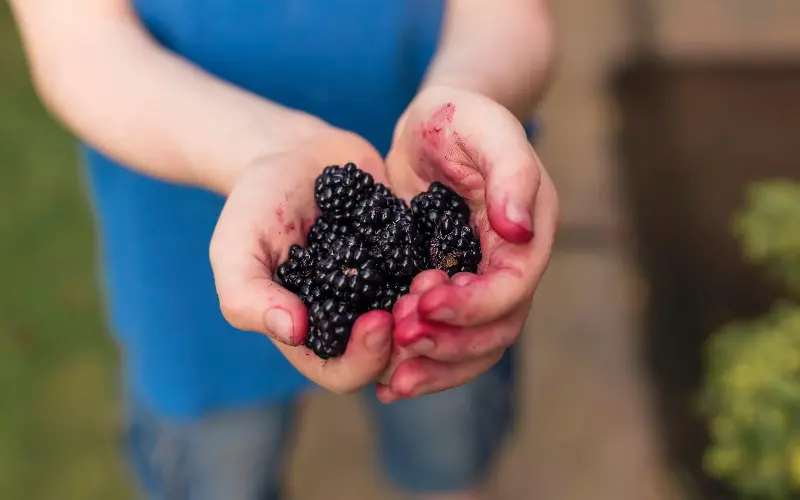
On holiday in West Wales last week, the blackberries were the best I’ve ever seen. They gleamed jet black from the hedgerows, dangling in enticing trusses over the grass verges, glossy fruit the size of cocktail olives peeking through the fences and at field edges. We filled bags, boxes, and even my hat – a few purple stains being small price to pay for another few pounds of the sweet, well-flavoured fruit.
As a child in the Seventies and Eighties, I’d have been shoulder-to-shoulder with plenty of other families busily stripping the berries from the bushes. But while passing strangers nodded approvingly at the sight of our brimming containers or flashed thumbs up as they drove past, we encountered no one else picking, and the quantities of over ripe and “gone over” berries suggested no foragers had made an earlier harvest. The same is true in my home city of Bristol, where I gather blackberries from loaded patches on the Downs alone.
I’m not the only person who has noticed a petering out of blackberry picking. In a recent letter to the Telegraph, reader Kate Pycock of Ipswich remarks “in recent years I have noticed that I seem to be the only person who picks any” of the blackberries plentiful near her Suffolk home.
So why the decline? After all, with the cost of living crisis, and awareness of the health benefits of fresh fruit, you’d think that the availability of free berries would be a godsend.
I blame the pernicious rise in risk aversion. I don’t mean just a few bramble scratches (although stories of unpleasant, but very rare, incidences of hogweed burns suffered by foragers don’t help).
But worse than that, we’ve lost the ability to trust food that doesn’t come with a label. We have delegated responsibility for the safety of what we eat to the supermarkets, so if something goes wrong, it is their fault not ours.
I’m often advised to pick only berries above dog-leg-cocking height, as if the (literally) low-hanging fruit was in some way permanently contaminated. My answer is two-fold: if it makes you feel better, by all means look further upwards for your berries. But also, don’t imagine that the pristine-looking produce in sealed plastic on the supermarket shelves has been untouched by wildlife or vermin, both in the field and in the storage units prior to packaging.
So pick your berries, and wash them in a large bowl of cool tap water. TikTok may be awash (literally, again) with tips to use vinegar, salt, bicarb, or all three, but there’s no need unless you like the flavour of vinegary, salty or soapy fruit...
Obviously, we don’t wash all of them. Quite a few (yes, ok, high-up ones) make their way into my family’s mouth as we pick. Partly it’s because there’s something very special about sun-warmed berries straight from the plant, but also there’s the game of chance – will it be sweet or sour? The different wild cultivars on a single country lane manifest themselves with subtle, and not so subtle, flavour variations. It’s biodiversity, the environmental buzzword of the decade, in action on your tastebuds.
As Kate Pycock says on the decline of blackberrying, “whatever the reason, it makes me sad.” Me too, although it does mean I have a freezer full of fruity booty, and a tray of blackberry-and-apple flapjacks in the oven right now. Berry lovely.
